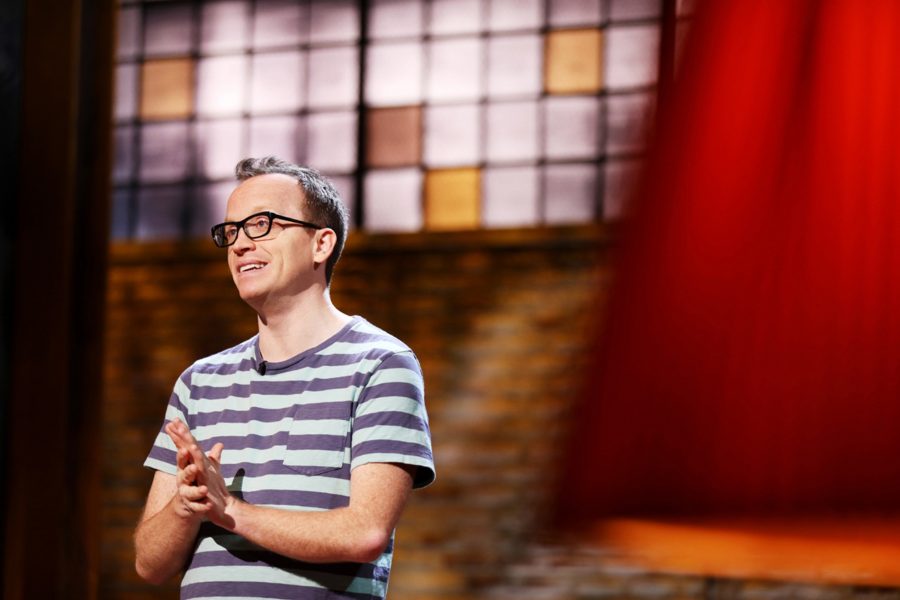Chris Gethard’s HBO special ‘Career Suicide,’ aired on Saturday, May 6, and his approach to his struggle with depression and anxiety is just brilliant.
The comedian, known for his anti-talk show, ‘The Chris Gethard Show’ and his regular performances at the Upright Citizen’s Brigade Theatre, did an adaptation of his one-man off-Broadway show of the same name. The show is a hilarious but clever disclosure about the mental illness he has been dealing with for nearly 20 years.
“Sometimes people just break,” Gethard says in a condescending tone, not far into the monolog. “Welcome to a comedy show!” he continues, with a wide grin on his face.
Throughout the show, you see Gethard talking about what he knows first hand: anxiety and depression, with a special focus on his own suicide attempt at 21. Yes, it’s heavy stuff, but that’s exactly the point. Gethard has a way of making these serious and dark themes into a silly day-to-day struggle, lightening up whatever awful situation he is talking about.
Gethard addresses Pfizer, sessions with his therapist and his suicide attempt
Gethard, 36, has always been a comedy fan, even as a kid, idolizing Andy Kaufman and ‘Saturday Night Live.’ When he moved to New York City, he started doing stand-up and has grown in an amazing way ever since then.
However, his internal struggles once got the best of him, as he attempted suicide in 2001, deliberately crashing his car into a pickup, an event he graciously talks about on his show, saying “because we don’t judge people when they die in car crashes, but we do judge people when they die of suicide.”
Gethard shares that he accomplished to manage his depression with prescription meditation-cocktail, he recalls, stepping toward the front row, saying, “I’m not trying to convince anybody about any of this.” He lowers his voice and continues, “I’m not a shill. This show is not secretly sponsored by Pfizer, I swear. I’m not even going to say that going on this type of drug is an easy thing to do. There are side effects.” He then does a smooth transition into what he called “the physique of a sad uncle that’s like, ‘Maybe I should’ve gotten married.’”
The comedian punctuates the show with terrible but surprisingly effective advice from his boundary-challenged therapist Barb, which is actually very funny: “I just thought everybody in fifth grade had an internal monolog like the guy from ‘Taxi Driver.’”
The 90-minute set is filled with more anecdotes like this, describing the ups and downs of his journey. Maybe the rawness of his storytelling should be enough to make the show a discouraging speech about suicide, but Gethard’s wittiness turns the dark experiences into a relatable story on why getting help is necessary.

Gethard is not a warning sign, but an invitation to get help
By the end, Gethard’s intentions are clear. He’s not only there to make you laugh at his episodes and experiences, but to break down the stigma around mental illness, and to show that getting help – with all the complications it may carry – is always better than the alternative.
At one point, he recalls waking up his mom to tell her he was suicidal, and how that conversation was the first step he took to get better.
After his car accident, he opened up to his parents, who found him help. “My regret is I didn’t talk to them sooner,” he said in an interview. “It would be really cool if kids saw this show. It would be even cooler if parents saw it and started that conversation.”
Gethard became more open about his depression 2012 after a fan left him an anonymous message on Tumblr about suicide. He replied with an open letter, talking about what he’s been through, and it became viral. He then started to integrate jokes inspired by this subject into his shows, eventually becoming ‘Career Suicide.’
He said that his therapist has seen the show, as well as his mom – she saw it twice. He even apologized to her. “‘You had to deal with it when it was not a comedy show at all. This was not a joke. I’m so sorry.’ She said it was very hard to see. After the first time, she just quietly said, ‘We got through it, and you’re using it to help people.’ That made me cry.”



Loading…